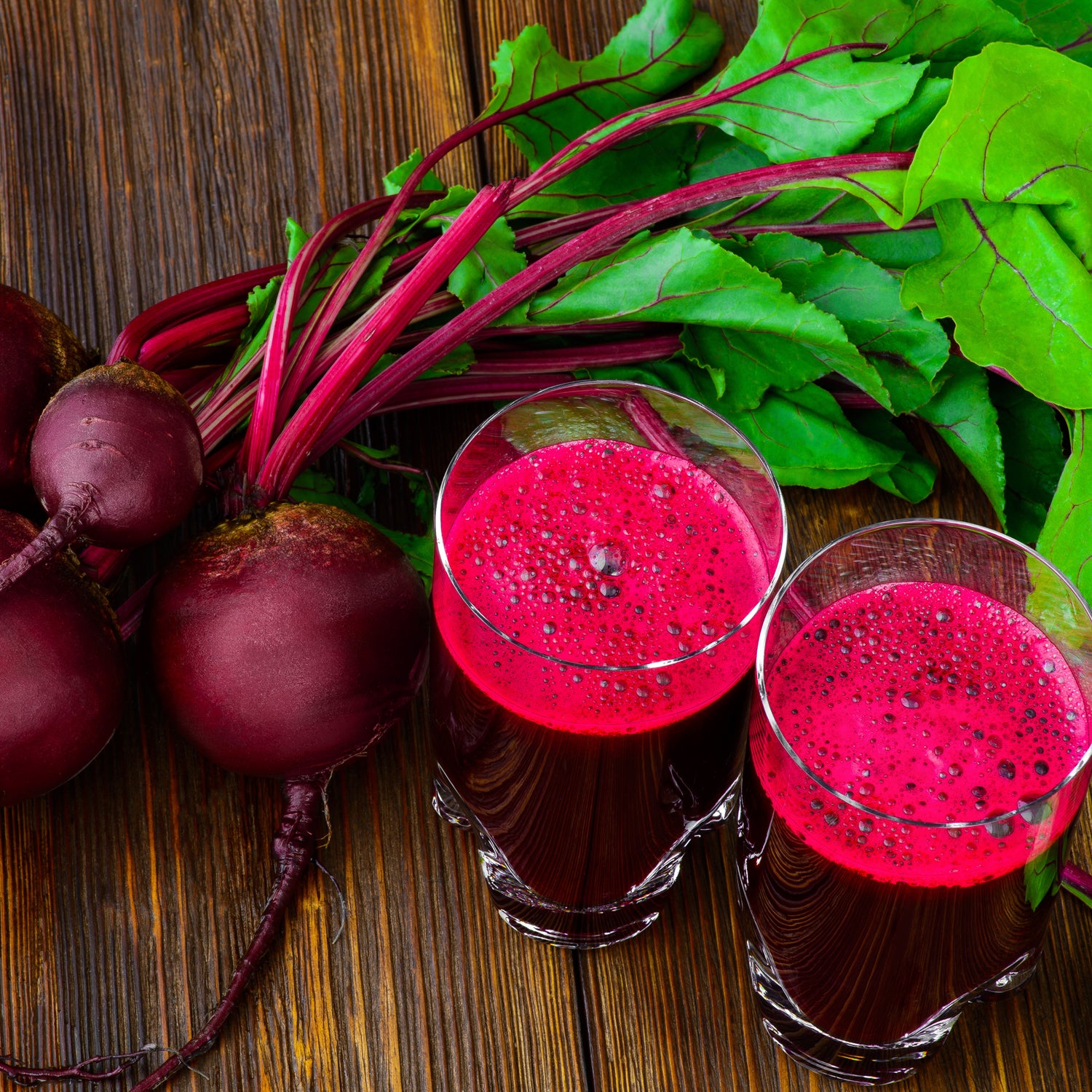By now you’ve probably heard about . Give it a quick Google search and you'll see that it can improve stamina, increase blood flow, lower blood pressure, and make you exercise longer. But a recent in the journal Sports Nutrition and Therapy might make you wipe that smug, crimson-tinged grin off your face.
Researchers at the Canadian Sports Institute found that when triathletes drank beet juice 2.5 hours before a 30-minute time trial, their performance didn’t improve. (Some participants saw modest gains, but by amounts deemed statistically insignificant.)
“Many of our Canadian National Team athletes are keen on using beet juice, but we didn’t have a lot of data on what its effects were,” says Heather Logan-Sprenger, head of the physiology department at the Canadian Sports Institute. Before she could justify putting the entire Canadian Olympic Team on beet juice supplements, she wanted to bolster its popularity with data.
Most of what we know about the positive effects of beet juice comes from studies on recreational athletes, not elites.
Logan-Sprenger says most of what we know regarding the positive effects of beet juice was gleaned from studies done on recreational athletes, not elites, which is maybe why its benefits have been overhyped. For example, a claimed that dietary nitrate, which is found in beet juice, could reduce the amount of oxygen the body requires during both low and high intensity exercise—but the subjects were “well-trained” young men, not elites. found similar results, but this time on “healthy men.” And a 2012 study looked specifically at cyclists and found six days of beet juice supplementation could improve performance over a 10k time trial—but again, the athletes were simply “trained.” (It should be noted too that sample sizes for each of these studies were small, 12, 9, and 8 participants, respectively.)
“When you work with elites, you have to sacrifice some of the controls,” says Logan-Sprenger, meaning that you can’t really mess with the diets or training loads of people whose financial security depends on winning their next race. Thus, it’s been hard for researchers to accurately gauge the performance benefits of beet juice on today’s best athletes.
So, why didn’t the wünder-veggie heralded as legal EPO by so many endurance athletes perform? Logan-Sprenger says elites are likely already producing a large amount of nitric oxide. In fact, increased nitric oxide production is a benefit of exercise, and she thinks the fitter you are, the less supplementation one needs. Nitric oxide is thought to also aid with vasodilation—or helping arteries and veins move more blood to the muscles. Regular exercise helps with that, too.
But you’re probably not an elite, and neither are we. For those of us without super-human abilities, beet juice supplementation may help—but again, the key word is may. Those just starting out in endurance sports are most likely to benefit, says Logan-Sprenger. But both she and Max Shute, an adjunct professor at Valdosta State University’s kinesiology program and a coach for , say that the fitter you are, the less likely beet juice is to help you.
“One of the cornerstone adaptations of aerobic exercise training is the development of pliable smooth muscle in your arteries and veins,” says Shute. And increased nitric oxide is a benefit all athletes doing interval training or high intensity work are likely to see.
In fact, Shute says the person who’ll gain the most from knocking back beet juice is “a sedentary smoker.” Those just getting into shape may benefit, too. But once you’re really fit—even just as a well-trained age group athlete—beet juice may stop helping you. But Logan-Sprenger notes that there’s a wide variation in how beet juice affects people, likely due to genetic differences. “It’s not as consistent as a caffeine supplement, which helps everyone,” she says. Several of her study participants did respond positively to beet juice, though: cyclists rode an average of .2 km farther during the 30-minute time trial after drinking beet juice. Technically, that small of a margin is considered “not statistically significant,” but, realistically, “a 10-15 second improvement on a 30-minute time trial may be the difference between gold and silver in a race,” says Logan-Sprenger.
Plus, there’s always the placebo effect. And it’s not like beet juice is going to harm you. “I don’t have any trouble supporting beets because they’re a healthy food choice,” says Shute. He does say, however, that he thinks you get the most benefit from eating whole beets, not buying beet powder or nitrate capsules.
The takeaway here, like most things in sports nutrition research, is results may vary. But if you’ve been choking down shots of beet juice and not seeing gains, feel free to give it a rest.


